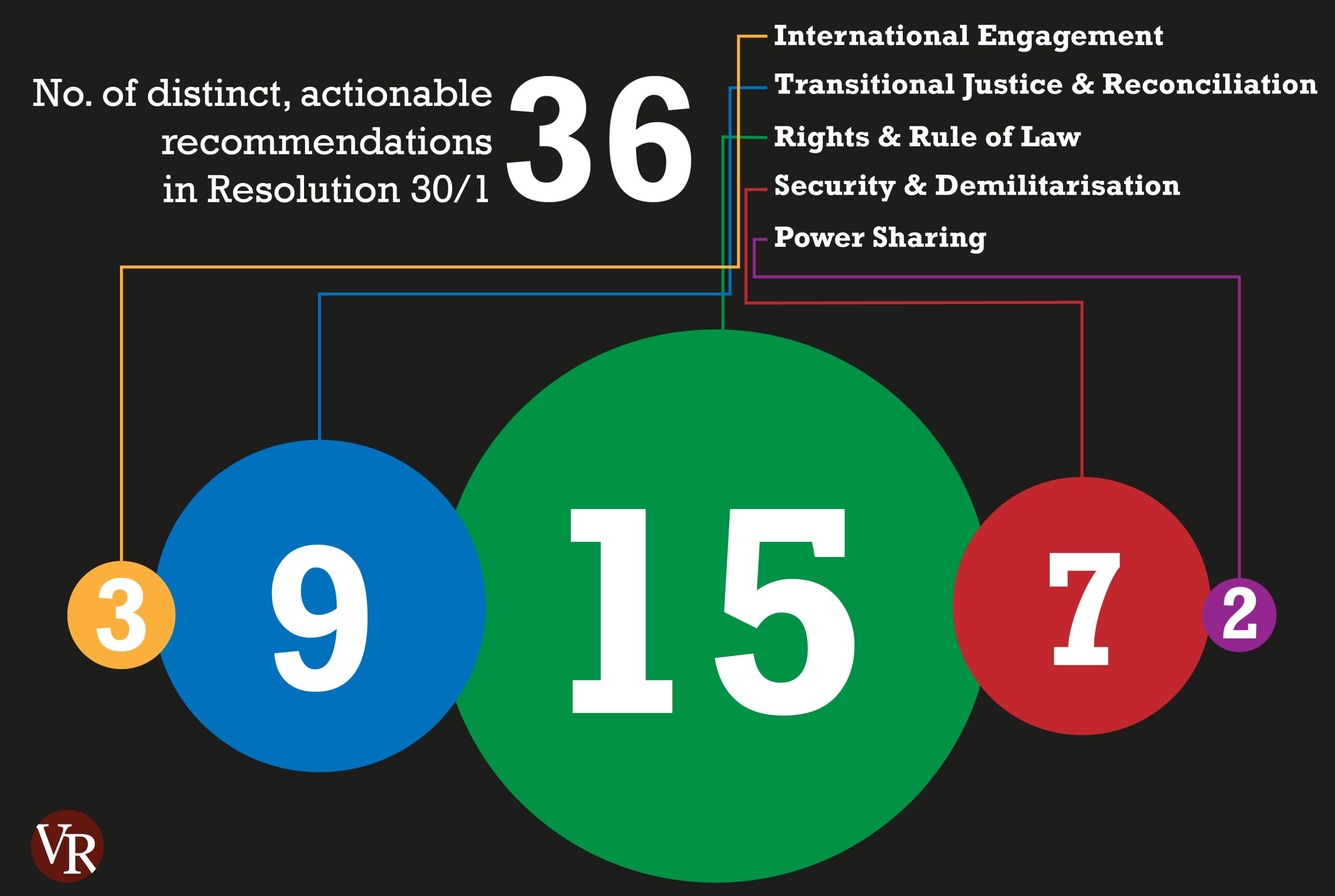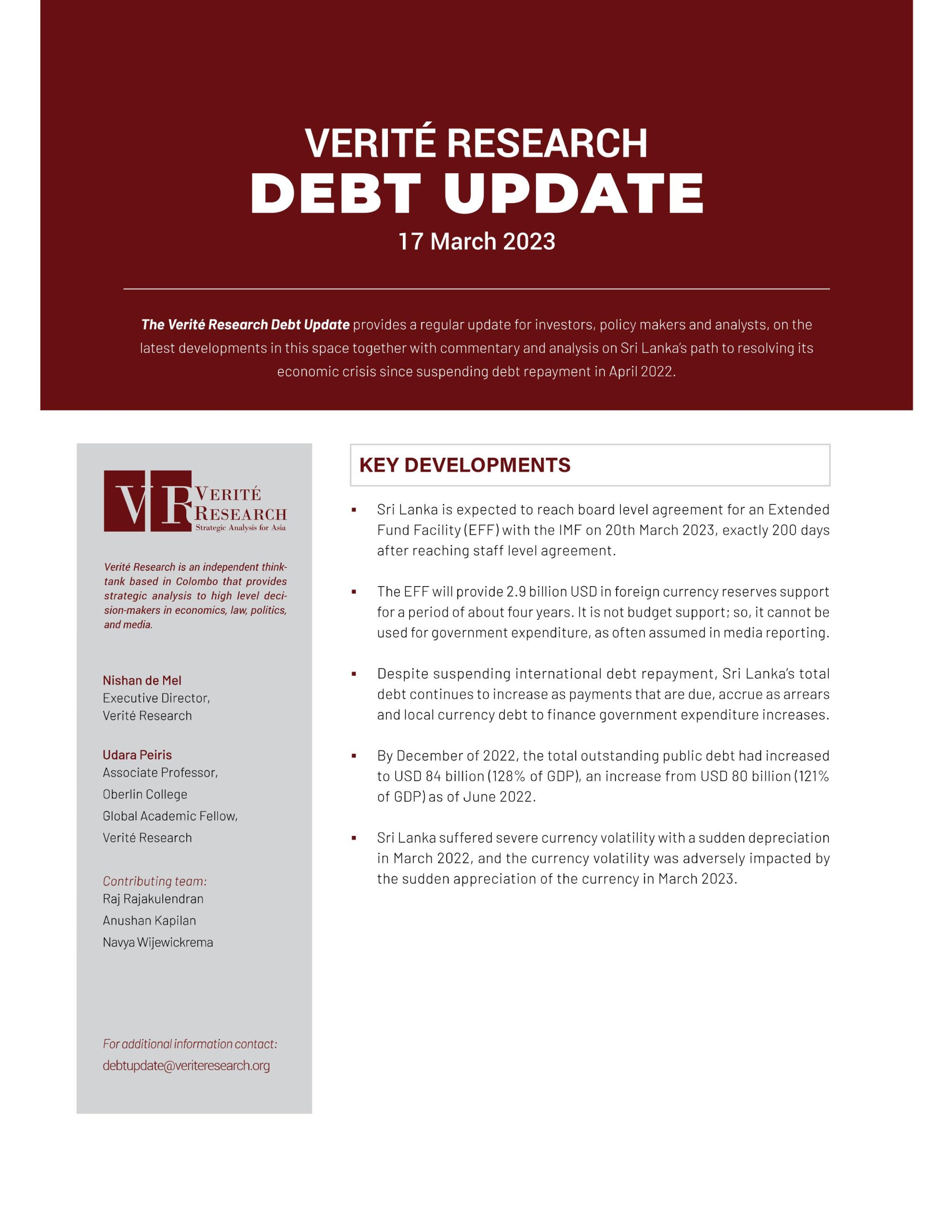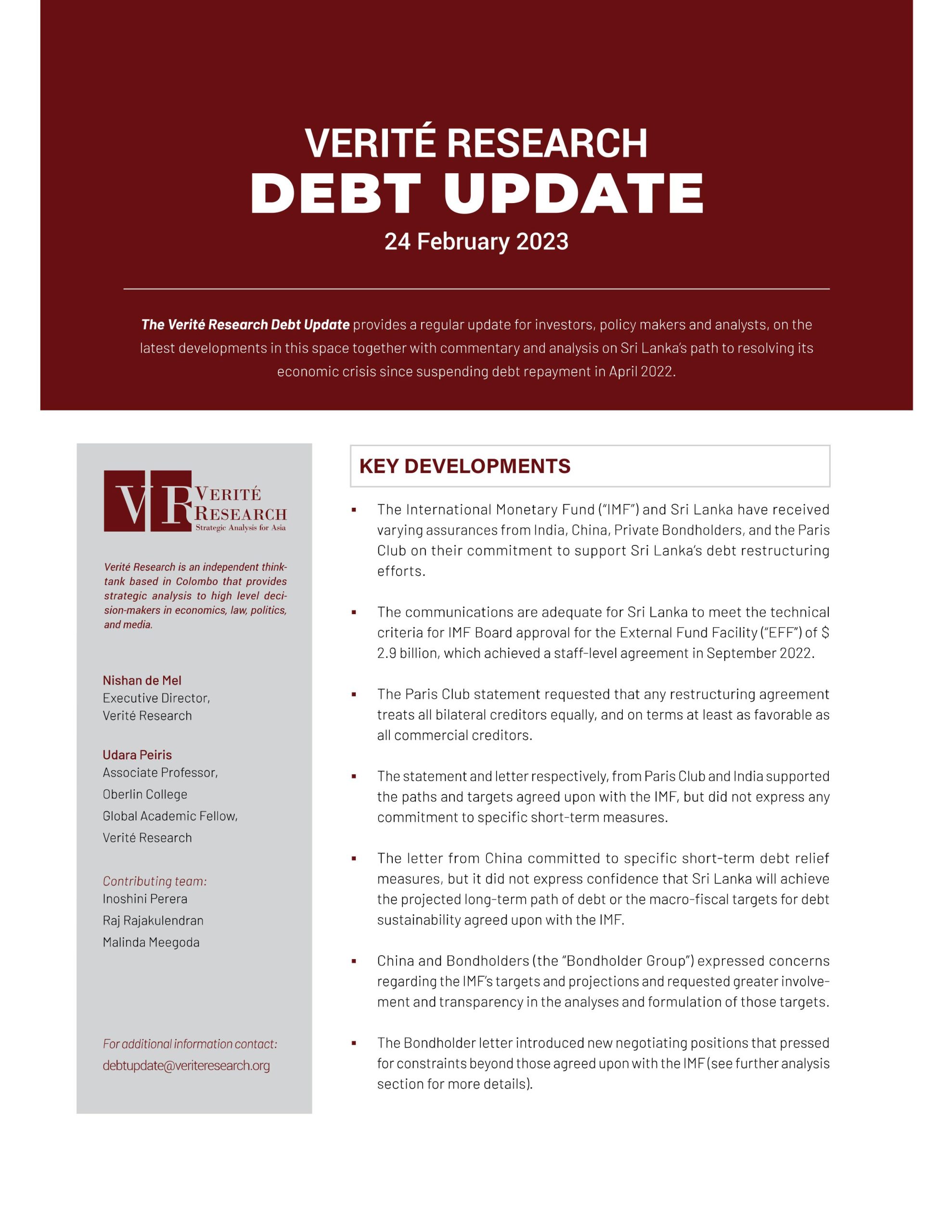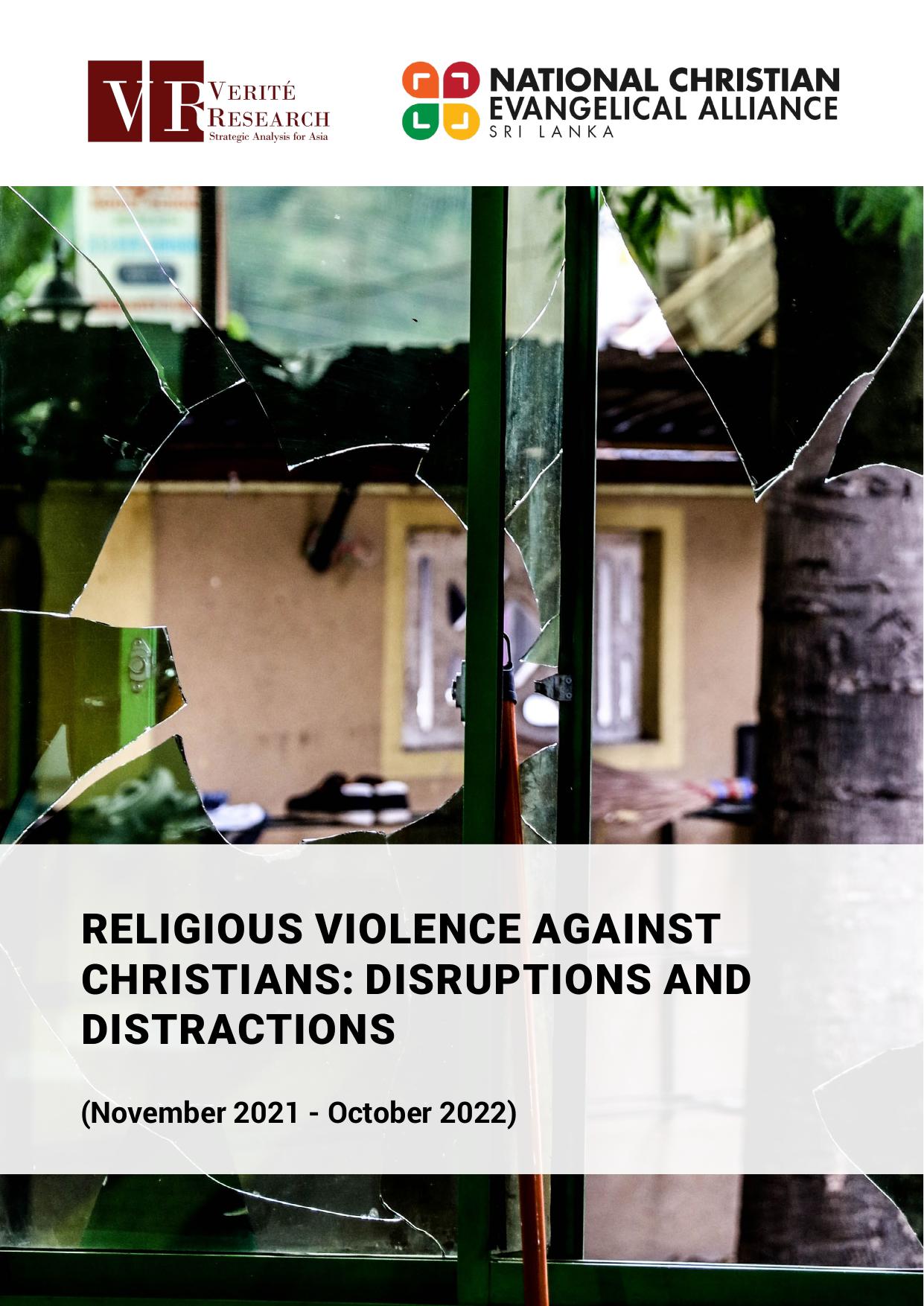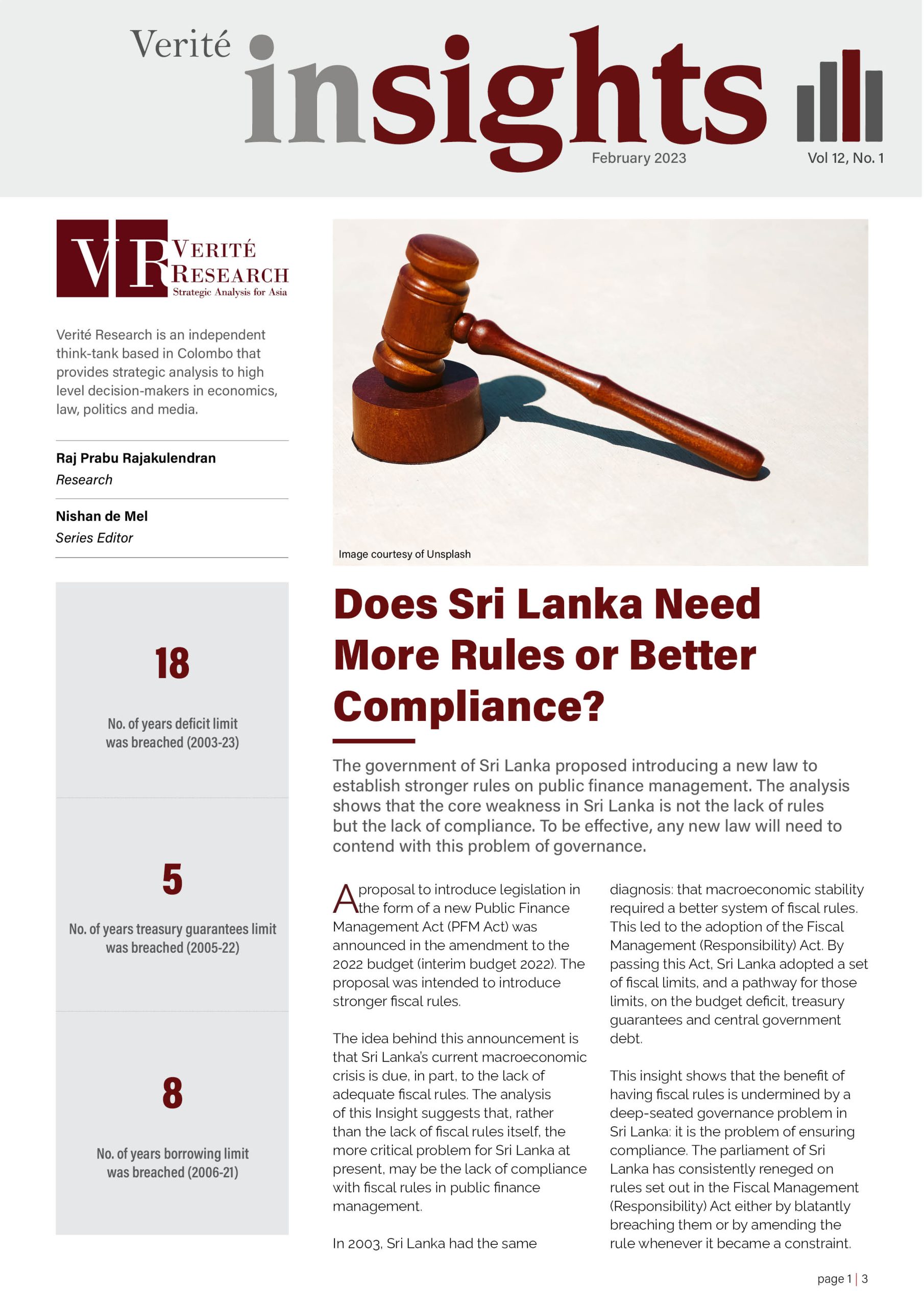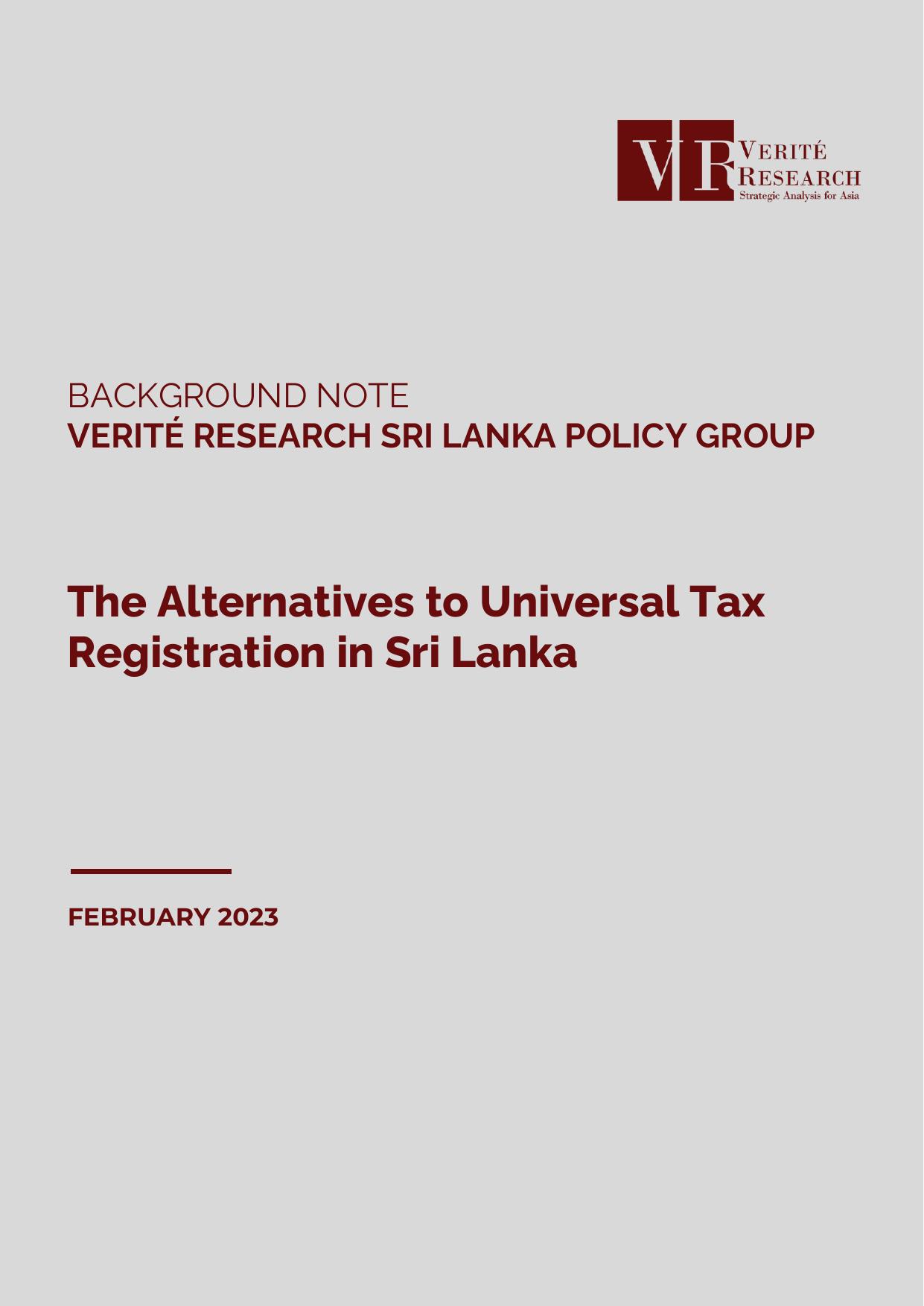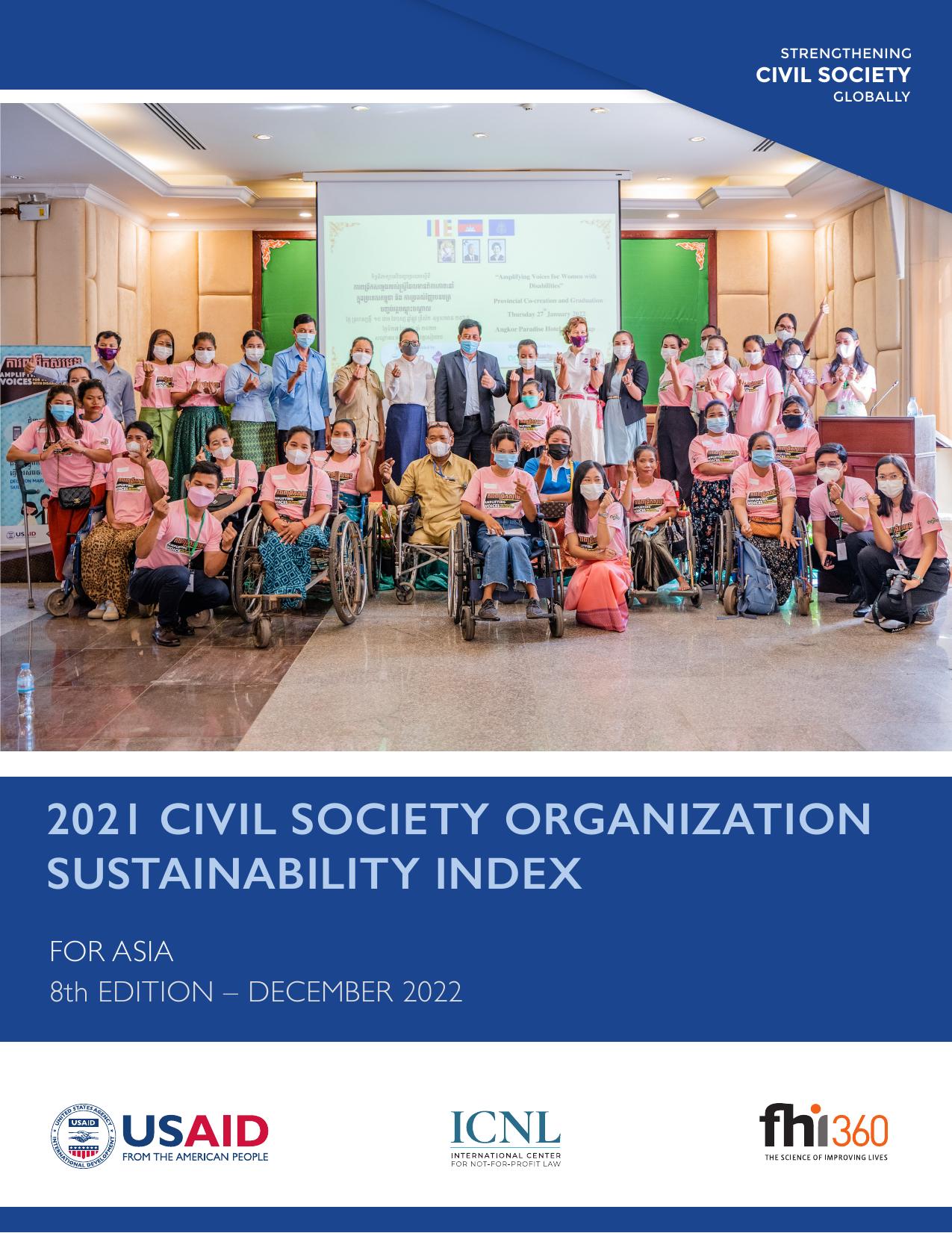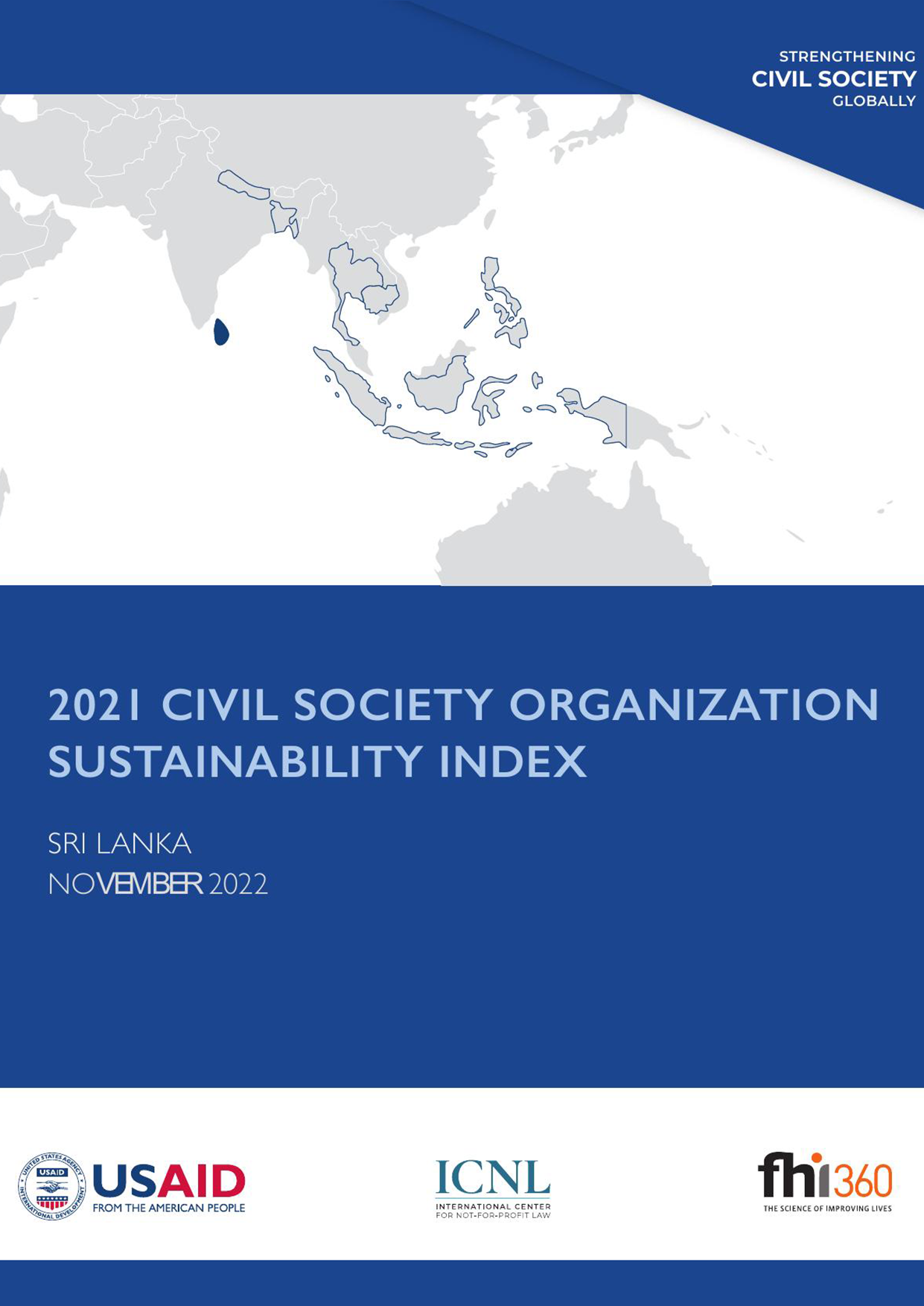This is Verité Research’s latest study on the Sri Lanka government’s progress in fulfilling the commitments on reconciliation and accountability in UNHRC Resolution 30/1. At the 43rd session of the United Nations Human Rights Council (UNHRC) in February 2020, Sri Lanka informed of its decision to withdraw from co-sponsoring Resolution 40/1 of 2019, and its preceding Resolutions 34/1 of March 2017, and 30/1 of October 2015. The 46th UNHRC session began in February 2021. The vote on Resolution A/HRC/46/L.1 on Sri Lanka was taken on 23 March 2021. This report analyses the government’s progress in fulfilling all 36 commitments made in UNHRC Resolution 30/1 from February 2020 to February 2021.
This edition includes coverage and analysis on the usability of the IMF financing and the volatility of the exchange rate.
This inaugural edition of our latest publication series known as ‘Verité Research Debt Update. ’Sri Lanka is currently experiencing a financial crisis on an unprecedent scale. In May 2022, Sri Lanka defaulted on its debt servicing obligations for the first time in its history since independence. Against this backdrop, the Verité Research Debt Update provides a regular update for investors, policy makers and analysts, on the latest debt related financial news together with a brief analysis on the latest developments. This edition includes coverage and analysis on the financial assurance letters issued by China, India and a group of private bond holders.
Ethno-religious violence is an enduring feature in Sri Lanka irrespective of the changes to the country’s socio-political and economic landscapes. This study offers insights into key patterns of violence directed against Christians between November 2021 and October 2022. A total of 75 incidents of anti-Christian violence were recorded during this period.
The government of Sri Lanka proposed introducing a new law to establish stronger rules on public finance management. The analysis shows that the core weakness in Sri Lanka is not the lack of rules but the lack of compliance. To be effective, any new law will need to contend with this problem of governance
This note argues that the Sri Lankan government’s recent proposal to implement universal tax registration is neither a viable nor effective strategy to increase the country’s tax revenue. Instead, the note proposes four alternative measures that are more feasible, while still serving the same purpose of expanding the tax base and generating more revenue.
The CSO Sustainability Index assesses the sustainability of the CSO sector across several countries in different regions around the world. The various regional editions of the 2021 CSO Sustainability Index assess the civil society sectors in seventy-three countries, including thirty-two in Sub-Saharan Africa, twenty-four in Central and Eastern Europe and Eurasia, eight in the Middle East and North Africa, and Mexico. The CSO Sustainability Index for Asia region, reports on the state of CSO sectors in eight countries in the region: Bangladesh, Cambodia, Indonesia, Nepal, Philippines, Sri Lanka, Thailand, and Timor-Leste.
The Civil Society Organization Sustainability Index (CSOSI) assesses the sustainability of the CSO sector across several countries from different regions. Since its beginning in 1997, it has expanded from covering 18 countries in Europe and Eurasia Region to 72 countries in 2021, including the Middle East, sub-Saharan Africa, and Asia.
Fair and effective recruitment practices have a significant impact on preventing and countering human trafficking. Universally accepted principles of fair recruitment suggest that workers should be well-informed of all aspects of employment, including the nature of the employment, payment mechanisms, access to dispute resolution, and safe return.
Exposure to poor air quality is ranked among the top 10 leading global risk factors for disease. The lack of visibility of air pollution often results in delay in public policy and personal responses, till the problem is acute. Improving the collection and access of air quality data is the first step, to making it safe to breathe in Sri Lanka.
